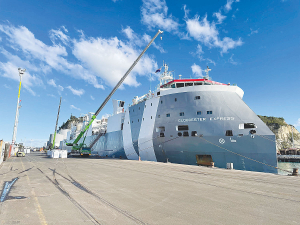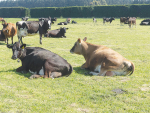Animal rights group SAFE has launched a nationwide campaign designed to issue a call to the new government, asking them to preserve the ban on live animal export.
The campaign is calling on Kiwis to add their names to a parliamentary petition headed by former chair of the National Animal Welfare Advisory Committee (NAWAC), Dr John Hellstrom.
The prohibition on live export by sea came into effect in April 2023, and was endorsed by submissions from NAWAC among others.
However, the ban has proved controversial with then-Agriculture Minister Damien O’Connor accused of ignoring official advice from the Ministry for Primary Industries.
National’s then-animal welfare spokesperson Nicola Grigg (now the current government’s Associate Minister of Agriculture) claimed the ban made a mockery of the select committee process by ignoring submitters who opposed the ban.
However, SAFE chief executive Debra Ashton says overturning the ban would not only jeopardise the welfare of animals, but also undermine the progress made for New Zealand.
“Reversing the ban on live export would not only ignore overwhelming public support but also subject animals to the distress of prolonged sea voyages and inadequate oversight at destination ports,” says Ashton.
“It is essential for the government to prioritise the best interests of New Zealand’s animals and listen to the voices of concerned citizens who advocate for their rights and welfare,” she says.
A recent survey from Camorra Research, commissioned by SPCA NZ, recently found that 83% of the 993 New Zealanders surveyed did not believe we could guarantee the welfare of animals once they arrive at their destination.
60% of those surveyed said overturning the ban would damage New Zealand’s reputation for animal welfare.
However, 19% of those surveyed believed the ban should be overturned.
Ashton says other countries are starting to shift away from live animal exports due to significant animal welfare concerns.
“Australia, Luxembourg, and the European Union are all considering or have taken steps to phase out live exports,” she says.
“Undoing our ban would mark the first instance in New Zealand’s history of legislation diminishing, rather than improving, animal welfare standards.
“We’re proud that New Zealand has led the way on live export and SAFE will not allow this Government to take us backwards,” she concludes.


















